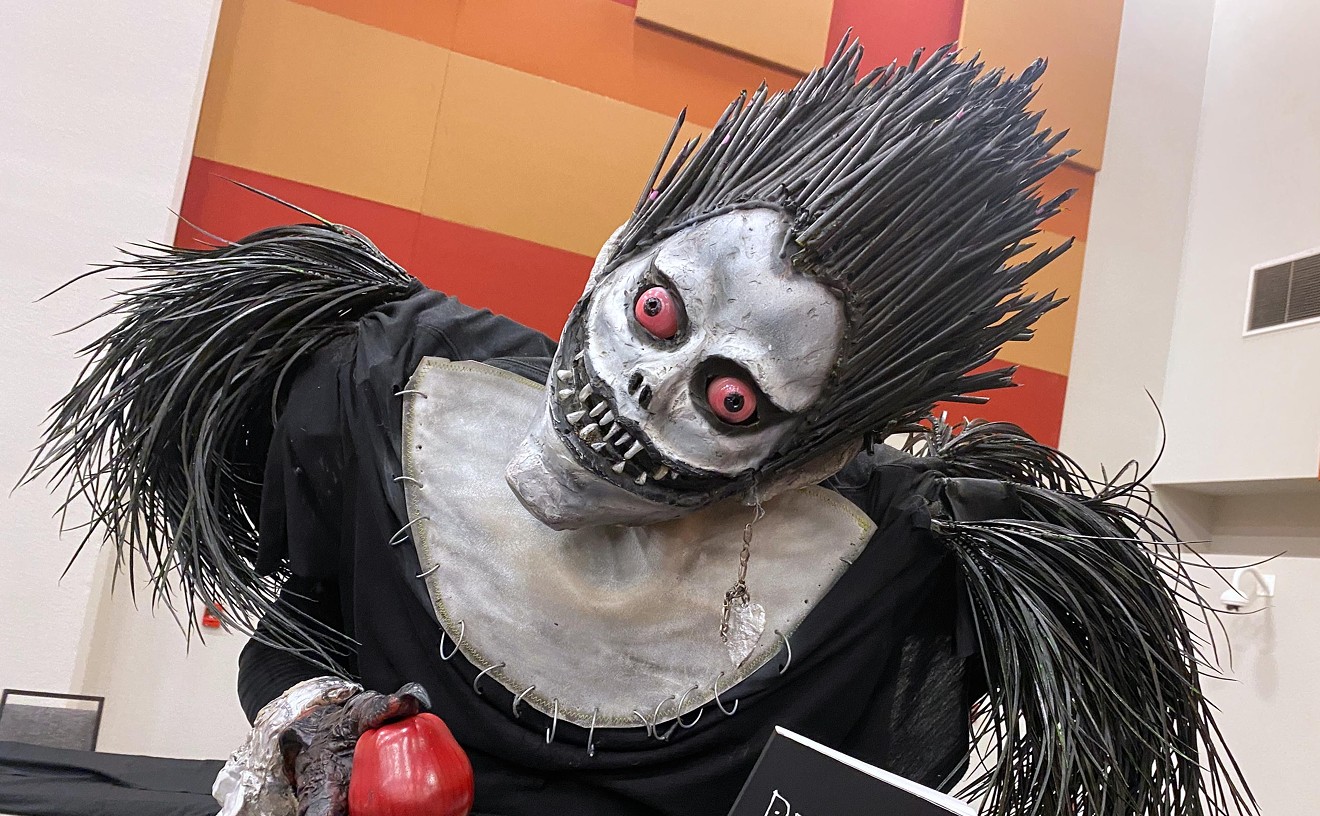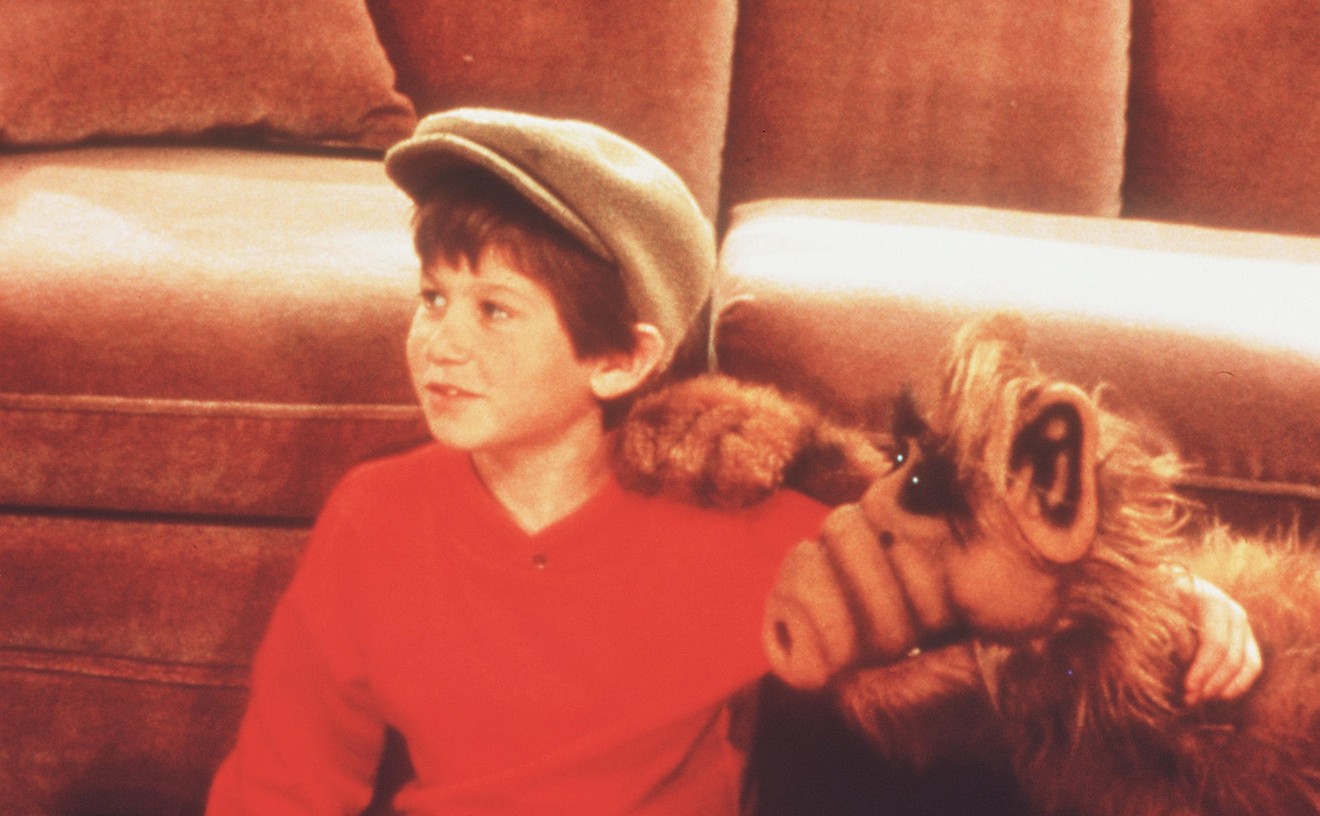The most interesting moments at opening night of The Gift Horse came during producer Janet Arnold's pre-curtain speech, in which she solicited money so that AJTC can, presumably, continue to present mediocre theater. Afterward, a stageful of local talent attempted to animate Michael Hardstark's swollen story about a couple of stumblebum brothers addicted to gambling. They needn't have bothered.
The Gift Horse concerns Saul (Nick Glaeser), a barber whose obstreperous father-in-law has a knack for picking racetrack winners. The old man -- a Scripture-quoting Talmudic scholar -- doesn't approve of gambling, however, and the pair argues principles and religion for what seems like an eternity. Hardstark's script focuses on zany bits related to the brothers paying off a loan shark, but never explores the more compelling relationships of the people tromping through his flabby story. I wanted to know why Estelle wouldn't let her kid move to the yeshiva to study with her father, but instead I got stuff like a tiresome "Who's on first?"-type sketch the brothers use to place a bet.
The cast struggles mightily with one-dimensional characters and manages to turn up several worthy performances. As written, the Louderman brothers are generic, wisecracking schleps, but Glaeser and Gene Ganssle enliven these comic clowns with funny bits and expert timing that improve what's on the page. Sam Barcelona makes his small role resonate with a sharp, funny take on every gangster-bookie cliché ever written, and Gwen Loeb makes the most of a single memorable scene in which she renounces her father and her husband in a sharp bellow that rings through the theater.
But fine acting can't save Hardstark's soft script, in which discarded Judaism is reduced to a gag and we're left to guess at the fate of the story's most interesting characters. I spent the ride home apologizing to my theater companion, an out-of-town guest who, recalling the road company of Annie I'd dragged him to the last time he visited, had pleaded with me to take him to "something worth seeing this time."
I hedged my bets and went alone to watch Twigs the following afternoon. As I entered the lobby of Phoenix Theatre, the usher patted my arm and said, "Oh, you're in for a lot of laughs!" I asked if the show was a comedy, and she told me, "Well, it's real funny and it has a lot of story in it!"
She was mistaken. I didn't laugh once during Twigs, and, no matter where I looked, I couldn't find anything resembling a story.
The trouble with George Furth's slothful two-act is its drab script, which introduces four different women -- three sisters and their mother -- played in four different sketches by the same actress. Each of the vignettes takes place in the ladies' kitchens on the day before Thanksgiving, and we're meant to find some wisdom in Alexander Pope's moral musing that "Just as the twig is bent, the tree's inclined."
Indeed, these women are all cut from the same timber: They're all deadly dull and, as portrayed by Robyn Ferracane, all come across as the same person in a different wig. Only one of the four sketches is worth bothering with: In the second piece, we meet Celia, a rattlebrained Army wife whose wobbly emotions have landed her in the nuthouse a couple of times. She and her husband, Phil (brilliantly acted by Bruce Miles, who spits out his anger and grief in a pink-faced rage), welcome a holiday houseguest between bouts of abuse.
In this sketch, Ferracane has a handful of interesting moments. She's particularly affecting as she reenacts a pitiful tap-dance routine from her past, and -- alone on the stage at the end of the piece -- as she responds to her husband's final tirade.
In the other sketches, though, Ferracane is just plain dull. She seems distracted, possibly by inane direction that finds her speaking soliloquies on a set suddenly gone dark. (At least once in each sketch, the lights go dim and a spotlight hits Ferracane -- a fascinating, horrible device meant to forewarn the audience that the lady is about to Say Something Meaningful.)
Director Michael Barnard seems to have spent all his time choreographing the interminable set changes, which are enacted by a pair of swishy young men who literally dance piles of furniture into place while disco music blares.
But no amount of goofball shenanigans can save this Thanksgiving turkey, which -- following so close on the heels of the corker I'd seen the night before -- found me giving thanks that my weekend of theater was finally over and I could go home.










